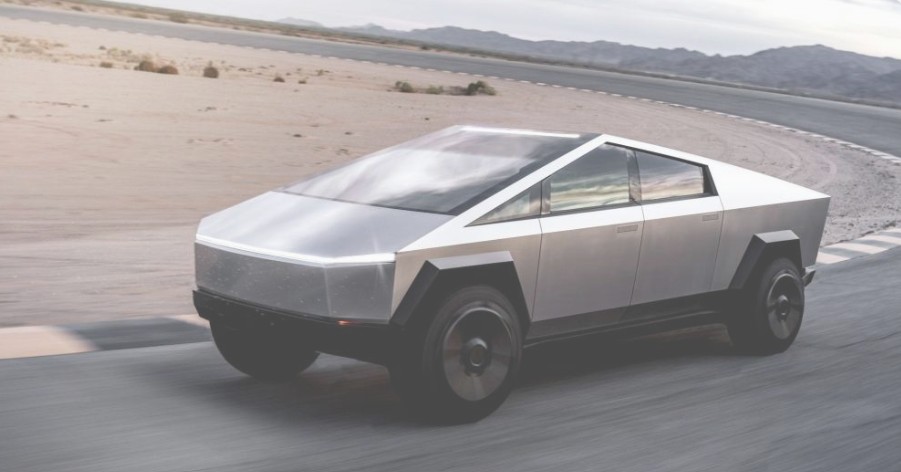Tesla is boosting its attempts to increase Tesla Semi deliveries to PepsiCo, its principal customer, in preparation for the electric semi-truck volume production. The Tesla Semi, unveiled in 2017 with an initial production target of 2019, has been delayed multiple times, with limited manufacturing beginning in late 2022. Despite these obstacles, the unique electric truck …
Tesla Plans to Ramp Up Semi Deliveries to PepsiCo

Tesla is boosting its attempts to increase Tesla Semi deliveries to PepsiCo, its principal customer, in preparation for the electric semi-truck volume production. The Tesla Semi, unveiled in 2017 with an initial production target of 2019, has been delayed multiple times, with limited manufacturing beginning in late 2022. Despite these obstacles, the unique electric truck is starting to impact the business, with PepsiCo leading the way as the primary operator of this cutting-edge vehicle.
Early Customers and Limited Production
Tesla and PepsiCo have used the Tesla Semi internally for over a year. Other customers have recently started employing electric semi trucks. Martin Brower and Sysco were seen utilizing the semi trucks last month. Additionally, Walmart and Costco have begun testing the vehicle.
Despite these new clients, the production volume remains low. The business is extending its Gigafactory Nevada to accommodate a high-volume manufacturing line. Volume manufacturing is scheduled for late next year, with expanded customer deliveries anticipated in 2026.
PepsiCo: Tesla’s Main Customer
PepsiCo remains Tesla Semi’s primary customer. Dan Priestley, head of the Semi program, spoke at the ACT Expo about the program’s current status. He emphasized that the Semi has a dedicated electric platform, distinguishing it from legacy truck manufacturers.
The Tesla Semi has a 500-mile range and supports megawatt charging. It enables operational parity between diesel and electric trucks. Customers can replace a diesel truck with a Semi without requiring additional cars. Priestley stated that PepsiCo’s fleet of Tesla Semis averages 1.7 kilowatt-hours per mile, even with hefty beverage loads.
“What this does is it unlocks the operational equivalence between diesel and electric. There’s none of these ratios that you need extra electric trucks do the same amount of work that diesels do. They can swap one for one in operations.”
Charging Infrastructure Commitment
Priestley reassured the industry of Tesla’s commitment to charging infrastructure. Despite recent cutbacks on the charging team, it intends to invest over $500 million in new supercharger sites this year. The organization is committed to offering a reliable charging solution for large trucks.
“To be very clear, charging is core to Tesla. This year, we are investing more than $500 million in new supercharger stations, expanding the network. We are committed to providing our customers with a great supercharging experience, and we’re going to extend that exact same train of thought into the heavy-duty side as well. We’re going to make sure that every vehicle we deliver has a charging solution supported that could come in a variety of flavors.”
Tesla: Upcoming Deliveries and Future Plans
Tesla has already installed Megachargers at PepsiCo locations. However, a public network comparable to the Supercharger network is being developed. Priestley said that Tesla intends to send 50 more Semi vehicles to PepsiCo before the production ramp. High-volume deliveries to additional clients are not expected until 2026, over ten years after the truck’s debut.
Tesla: The success of PepsiCo’s Pilot Program
The PepsiCo Tesla Semi pilot experiment was successful. PepsiCo’s fleet of 21 Tesla Semis outperformed expectations in real-world performance. During the North American Council for Freight Efficiency’s Run on Less event, the Tesla Semi outperformed its contemporaries regarding daily miles traveled.
Contrary to popular belief, PepsiCo’s Semis hauled big beverage loads, not just light items like chips. During the Run on Less event, one Tesla Semi traveled 1,076 miles in a single day, including three rapid charging stops. Most of these miles were driven with a gross vehicle weight close to the 82,000-pound limit for zero-emission Class 8 trucks.
Tesla is preparing to increase its semi-delivery to PepsiCo while increasing its production capacity. Despite the delays, the Semi has demonstrated excellent performance and operational efficiency. As it invests in charging infrastructure and ramps up manufacturing, the electric vehicle is expected to impact significantly the heavy-duty transportation business by 2026.
Subscribe to Our Newsletter
Keep in touch with our news & offers










